December 18, 2019
IST Austria – a place of growth
Four new professors have joined the Institute in 2019 to raise total number of research groups to 53
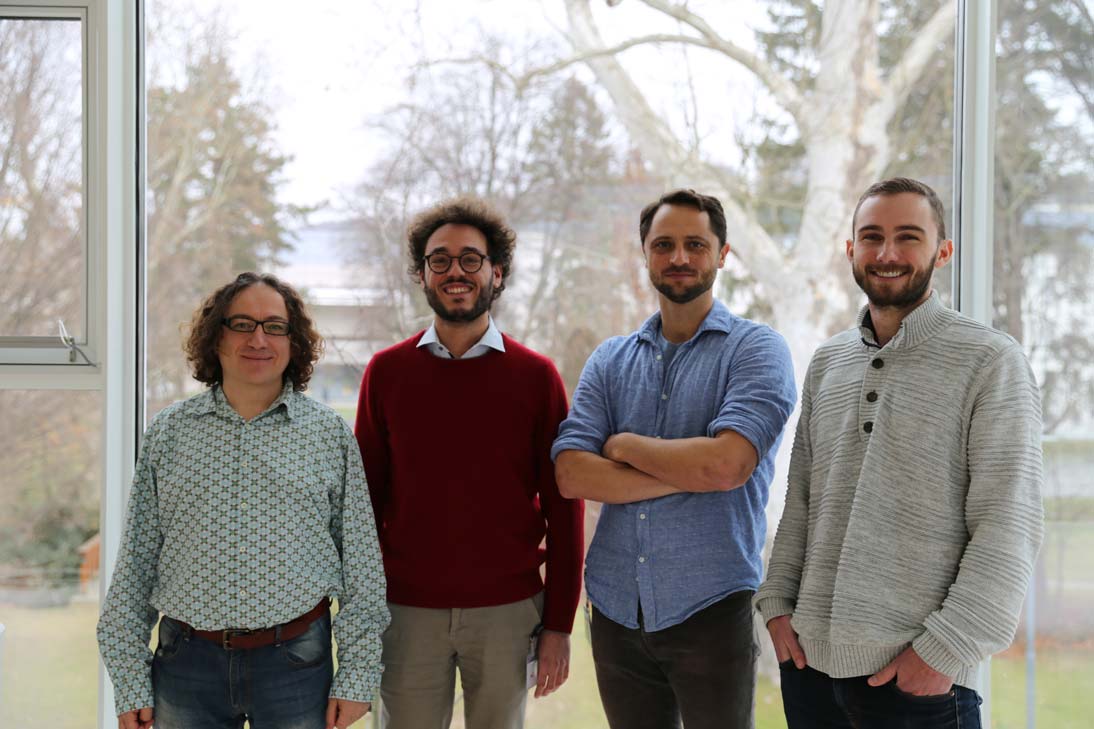
With four new professors joining the Institute this year, the number of research groups at IST Austria has increased to 53. In the spirit of curiosity-driven basic research, Professors Mario de Bono (neuroscience), Andrew Higginbotham and Scott Waitukaitis (physics) as well as Marco Mondelli (computer science) study a diverse range of interdisciplinary topics including neuronal circuitry, machine learning, complex material science, and quantum computing.
The variety of research topics at IST Austria keeps expanding as new faculty arrive: in 2019, neurobiologist Mario de Bono, quantum physicist Andrew Higginbotham, soft-matter physicist Scott Waitukaitis and data scientist Marco Mondelli joined the Institute. This brings the total number of research groups at IST Austria to 53.
Mario de Bono: Genes, Circuits, and Behavior
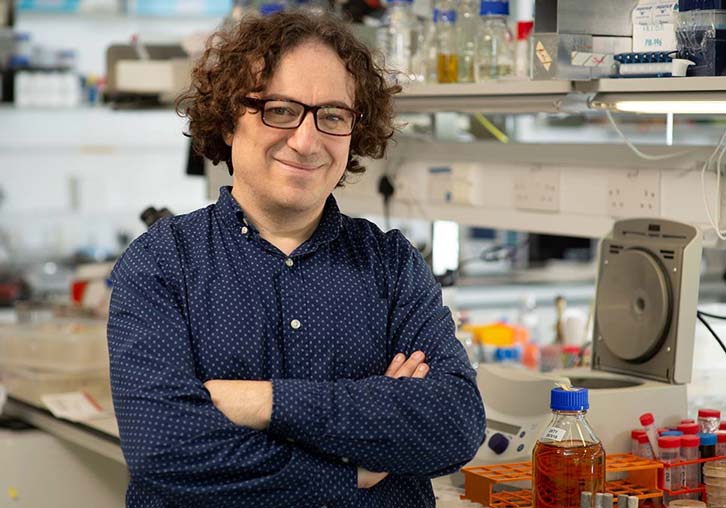
Neurons are highly specialized cells, and many fundamental questions about their organization, function and plasticity are still unaddressed. The research group of Mario de Bono, who joined IST Austria in March 2019, seeks to discover and dissect evolutionarily conserved nanomachines that underpin the properties of neurons and circuits. The group initiates many of their studies in the model organism Caenorhabditis elegans. In this animal, each neuron can be identified in vivo, selectively manipulated using transgenes, and its activity readout using genetically-encoded sensors. Powerful genetics and advanced genomic resources make high-throughput forward genetics and single neuron profiling possible.
By complementing genetics with biochemistry, the group’s research aims at gaining insights into neurological processes and molecular mechanisms that are usually conserved from C. elegans to man.
With a PhD in Biology from the University of Cambridge, UK, Mario de Bono worked as a Research Associate at the Howard Hughes Medical Institute, UCSF, San Francisco, USA. Before joining IST Austria, he was a group leader at the MRC Laboratory of Molecular Biology, Cambridge, UK, for 20 years.
Andrew Higginbotham: Condensed Matter and Quantum Circuits
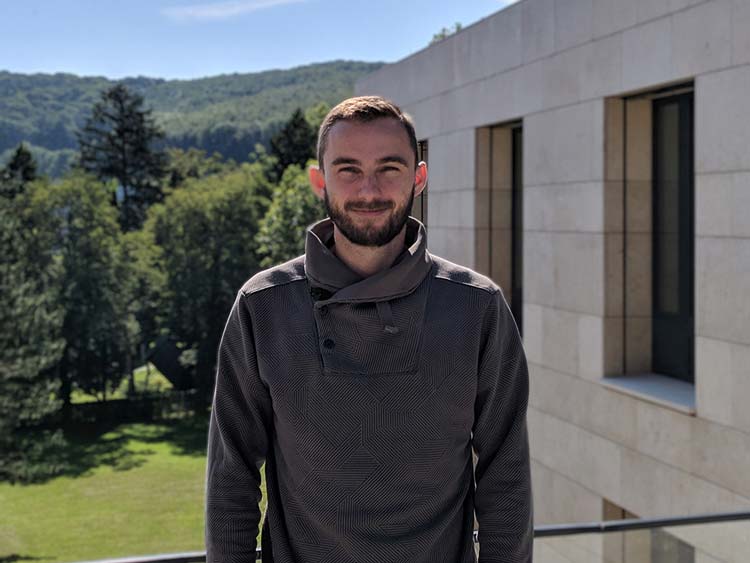
Quantum systems are fragile. Environmental noise typically destroys interesting and useful quantum behavior, resulting in an effectively classical system. Andrew Higginbotham joined IST Austria as Assistant Professor in March 2019 to build circuits that are exceptions to this general rule, aiming to understand the nature of quantum systems that are inherently noise-resilient, and to develop future information processing technology.
Research in Higginbotham’s group experimentally explores the relationship between condensed matter systems and information processing. In practice, the group builds devices with topological superconductors, quantum dots and quantum-critical matter, and seeks to understand their behavior using electrical transport, superconducting microwave circuits and electromechanical oscillators. The central idea of their approach is that building rudimentary information-processing devices both teaches us about the physics of these interesting systems and advances technology such as quantum computing.
With a PhD in Physics from the Harvard University, USA, Andrew Higginbotham worked as a postdoctoral researcher at the University of Colorado in Boulder, USA. Before joining IST Austria, he was a researcher and group leader at Microsoft Station Q, Copenhagen, Denmark.
Scott Waitukaitis: Soft and Complex Materials
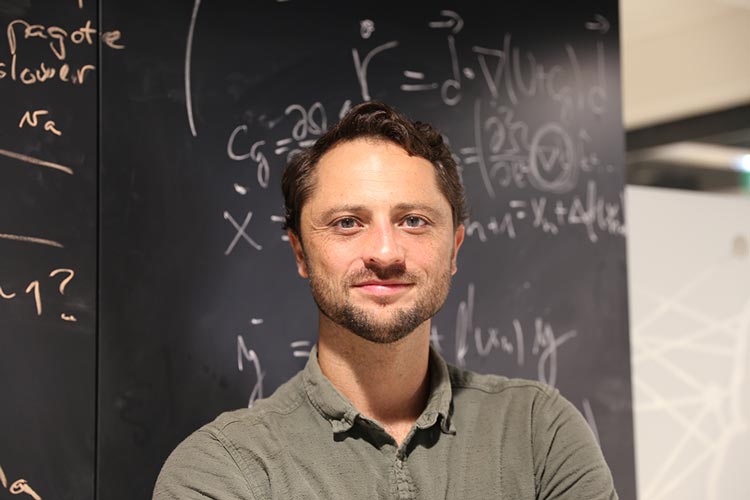
Joining IST Austria in July 2019, experimentalist Scott Waitukaitis is building up a highly interdisciplinary research group in soft matter physics. His group’s work revolves around complex phenomena that arise via exotic interactions between liquids and solids. One unexpected example is the phenomenon of “tribocharging”—the exchange of electrical charge between objects during contact. Although this phenomenon is well-known to anyone who has been shocked by a doorknob, the underlying mechanism is poorly understood, but recent results suggest it could be related to adsorbed monolayers of water.
At larger scales, the Waitukaitis group is interested in non-Newtonian dynamics that arise when colloidal-sized particles are suspended in liquids. Perhaps the most well-known example is when cornstarch particles are mixed with water and behave both liquid-like when perturbed gently, but solid-like when vigorously agitated. In this direction, Waitukaitis’s long-term goal is to be able to control the flow of these materials locally and thus create “metafluids.”
Scott Waitukaitis received his PhD in Physics from the University of Chicago, USA. Prior to joining IST Austria, Scott Waitukaitis worked as a postdoctoral fellow at Leiden University and AMOLF in the Netherlands.
Marco Mondelli: Data Science, Machine Learning, and Information Theory
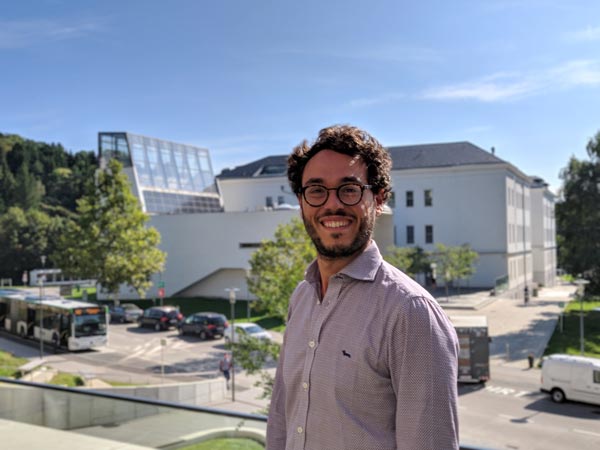
We are at the center of a revolution in information technology, with data being the most valuable commodity. With the growing number of large and complex information systems, there is a need to analyze ”big data” in an effective way that draws out meaningful inferences that can be used in the future. In addition, analytical and inference problems typically span across different fields and often arise in a variety of applications coming from engineering and natural sciences. Marco Mondelli joined IST Austria as an Assistant Professor in September 2019 to investigate new ways to analyze the exploding number of data sets coming from modern and emerging technologies. In particular, Mondelli’s group will focus on wireless communications and machine learning in order to create new optimized ways of sending information.
Mondelli’s research aims not only to benefit the field of data science, but also many other disciplines and emerging technologies, which all now rely on effective measures to analyze and extract information out of complex data sets.
Marco Mondelli received his PhD in Computer and Communication Sciences at École Polytechnique Fédérale de Lausanne (EPFL), Switzerland. Prior to joining IST Austria, he worked as a postdoctoral researcher at Stanford University, USA.



